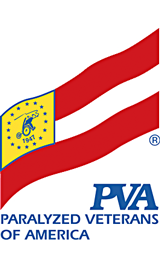This on-line/on-demand course offers the foundations in the assessment and provision of wheeled mobility and seating equipment for persons with disabilities. The essential components of the service delivery process including evaluation and methods for applying the findings to appropriate interventions and outcomes as part of an interdisciplinary team are presented and discussed. This 16-hour course applies case studies, evidence-based practice, and best-practice guidelines throughout with modules covering the following topics:
- Service Delivery Process (Click Here for Open Access Viewing of Module 1)
- Seating Biomechanics
- Seat Cushions, Backrests, and other Supports
- Manual Wheelchairs
- Powered Mobility Devices
- Seat Functions
- Documentation & Clinician Billing
- Wheelchair Transportation
Course Presenter
Mark R. Schmeler, PhD OTR/L, ATP
Assistant Professor, Graduate Faculty, and Director of the Continuing Education Program in the Department of Rehabilitation Science & Technology at the University of Pittsburgh.
Course Modules 1-8
How is the course set-up?
Each module contains a link to a 45-90 minute video lecture, a downloadable hand-out, links to additional readings and resources. Each module takes about 2 hours to complete depending on the length of the video and additional readings. Four video case studies are provided in the first module and referred to throughout the other course modules to assist in better understanding the course content. To enroll in the course log into the RST CE data base. Attendees are required a to complete a pretest in inorder to assess there knowledge followed by a post test inorder to receive a CE certificate.
Who should take the course?
This course is designed for any person who needs a fundamental yet comprehensive understanding of the field of wheeled mobility and seating. This includes but is not limited to rehabilitation clinicians (Occupational therapist and physical therapist), other healthcare personnel's (Physician and Nurses), consumers, families, researchers, suppliers, manufacturers, policy makers and third party payers'. The course could also assist people who need a review of the fundamentals to as part of their preparation for the RESNA Seating & Mobility Specialist (SMS) certification.
Learning Objectives
At the conclusion of this online course, participants will be able to:
- Recognize the contribution that a systematic functionally-based approach to wheeled mobility and seating evaluation and intervention brings to successful outcomes
- Identify the role and importance of evidence-based practice related to wheeled mobility and seating interventions
- Identify the essential components of the wheeled mobility and seating evaluation and service delivery process to ensure successful outcomes
- Identify the fundamentals of seating biomechanics and the components of a physical motor assessment
- Differentiate between specific types of seating and positioning interventions and how they could affect functional performance
- Recognize how different manual wheelchairs and various powered mobility intervention options and configurations can maximize functional performance
- Identify essential documentation components and strategies that comply with coverage policies and result in successful funding outcomes
Technical Requirements
This course is delivered using the MediaSite Live system that can be viewed with any web browser. To test your system go to the following link. Were a talking head video on the left and the PowerPoint slides on the right of your screen. All of the course handouts are available in .pdf format. You will need Adobe Acrobat Reader to view these files.
Continuing Education
The University of Pittsburgh and the RSTCE program offer CEUs for courses that comply with accepted continuing education standards. RSTCE CEUs are accepted by the Rehabilitation Engineering & Assistive Technology Society of North America (RESNA) for certification and re-certification of the Assistive Technology Professional (ATP) as well as the National Registry of Rehabilitation Technology Suppliers (NRRTS) Certified Rehabilitation Technology Supplier (CRTS) credential. RSTCE CEUs are also accepted as PDUs by the American Occupational Therapy Association (AOTA). Many state licensing boards will also accept the RSTCE CEUs, however individuals should verify specific requirements with their local boards.
This course has been certified for 1.2 CEU (12.0 contact hours) by RSTCE at The University of Pittsburgh. Information about obtaining CEUs can be found at the RSTCE website: http://www.rstce.pitt.edu.
Acknowledgements
RST CE would like to thank the Paralyzed Veterans of America for their support in the production of this course material.
Need assistance? Contact the RSTCE Team!
Updated | 02.04.2016


